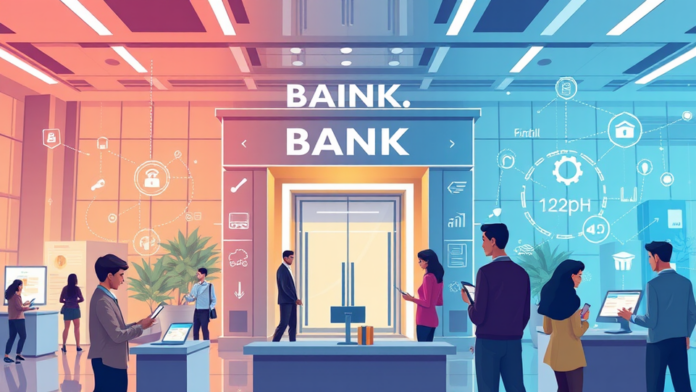Introduction to Fintech Innovations
Definition and Scope of Fintech
Fintech, or financial technology, encompasses a broad range of innovatiins that enhance and automate financial services. It includes mobile banking, peer-to-peer lending, and blockchain technology. These innovations streamline processes and improve user experience. Many consumers prefer digital solutions. Fintech also addresses regulatory compliance through advanced analytics. This is crucial for risk management. The sector is rapidly evolving, driven by consumer demand for efficiency. It is an exciting time for financial services.
Historical Context and Evolution
The evolution of fintech began in the late 20th century with the advent of electronic banking. This innovation allowed consumers to access their accounts remotely. Subsequently, the rise of the internet further accelerated this transformation. Online payment systems emerged, facilitating e-commerce growth. Additionally, mobile technology introduced new financial services. This shift has changed consumer expectations significantly. It is a remarkable development in finance.
The Role of Technology in Banking
Emerging Technologies Shaping Finance
Emerging technologies such as artificial intelligence and blockchain are significantly reshaping finance. These technologies enhance data analysis and improve transaction security. For instance, AI algorithms can predict market trends effectively. This capability allows for better investment decisions. Moreover, blockchain ensures transparency and reduces fraud risks. It is a game changer for financial transactions. The impact of these technologies is profound.
Impact of Digital Transformation on Traditional Banks
Digital transformation has significantly altered the landscape for traditional banks. They now face increased competition from fintech companies. This shift compels banks to adopt innovative technologies. For example, many banks are implementing mobile banking solutions. These solutions enhance customer engagement and streamline operations. Additionally, data analytics allows banks to personalize services effectively. This is crucial for customer retention. The pressure to innovate is immense.
Key Fintech Innovations
Blockchain and Cryptocurrencies
Blockchain technology underpins cryptocurrencies, providing a decentralized ledger for transactions. This innovation enhances security and transparency in financial operations. Each transaction is recorded in a block, which is then linked to previous blocks. This structure prevents tampering and fraud. Moreover, cryptocurrencies facilitate cross-border payments with lower fees. This is a significant advantage over traditional banking systems. The potential for smart contracts further expands blockchain applications. It is a transformative development in finance.
Artificial Intelligence and Machine Learning
Artificial intelligence and machine learning are revolutionizing financial services. These technologies analyze vast amounts of data quickly. They identify patterns that inform investment strategies. This capability enhances decision-making processes significantly. Additionally, AI-driven chatbots improve customer service efficiency. They provide instant responses to client inquiries. The integration of these technologies is essential for competitiveness. It is a critical advancement in finance.
Regulatory Challenges and Opportunities
Current Regulatory Landscape
The current regulatory landscape presents both challenges and opportunities for financial institutions. Compliance with evolving regulations requires significant resources. This can strain smaller firms disproportionately. However, effective compliance can enhance trust and credibility. Additionally, regulators are increasingly open to innovation. This creates opportunities for collaboration between fintechs and traditional banks. Adapting to these changes is crucial for success. It is a dynamic environment for finance.
Future of Regulation in Fintech
The future of regulation in fintech will likely focus on balancing innovation and consumer protection. Regulators are expected to adopt more flexible frameworks. This approach can foster growth while ensuring safety. Additionally, collaboration between regulators and fintech firms is essential. Such partnerships can lead to more effective regulations. The landscape will continue to evolve rapidly.
Consumer Behavior and Expectations
Changing Preferences in Banking Services
Changing preferences in banking services reflect a shift towards digital solutions. Consumers increasingly demand convenience and accessibility. This trend drives the adoption of mobile banking applications. These applications offer real-time transaction capabilities. Additionally, personalized financial services are becoming essential. Customers expect tailored recommendations based on their behavior. This is crucial for enhancing customer satisfaction. It is a significant evolution in banking.
The Rise of Digital-First Consumers
Digital-first consumers exhibit distinct behavior patterns shaped by their online experiences. He prioritizes convenience and speed in transactions. This shift has led to heightened expectations for seamless interactions across platforms. Many consumers now demand personalized services tailored to their preferences. It’s fascinating how technology influences choices. Trust in digital security is paramount for him. He often seeks brands that demonstrate transparency. This trend reflects a broader change in consumer values. Are businesses ready to adapt?
Case Studies of Successful Fintech Companies
Innovative Startups Disrupting the Market
Innovative fintech companies are reshaping financial services. They leverage technology to enhance user experience. For instance, one startup streamlined loan applications, reducing approval times significantly. This efficiency attracts more customers. Another company offers personalized investment advice through algorithms. Many users appreciate tailored financial solutions. These advancements challenge traditional banking models. Are consumers ready for this change? The market is evolving rapidly.
Established Banks Adopting Fintech Solutions
Established banks are increasingly integrating fintech solutions to enhance operational efficiency. This integration often leads to improved customer engagement. For example, a major bank adopted a digital platform for real-time payments. Customers appreciate the speed and convenience. Another institution partnered with a fintech firm to offer robo-advisory services. This innovation attracts tech-savvy investors. Such collaborations signify a shift in traditional banking. Are banks keeping pace with consumer expectations?
The Future of Banking in a Fintech World
Predictions for the Next Decade
In the next decade, banking will increasingly rely on fintech innovations. He anticipates a shift towards more personalized financial services. This trend will likely enhance customer satisfaction. Many banks will adopt artificial intelligence for decision-making. It’s interesting how technology transforms finance. Digital currencies may become mainstream, altering transaction methods. He wonders how this will affect traditional banking. The landscape is evolving rapidly.
Strategies for Banks to Stay Competitive
To remain competitive, banks must embrace digital transformation. This shift enhances operational efficiency and customer experience. He believes that investing in technology is crucial. Many institutions are now prioritizing data analytics for informed decision-making. This approach allows for better risk management. Collaboration with fintech firms can drive innovation. It’s essential to adapt to changing consumer preferences.

